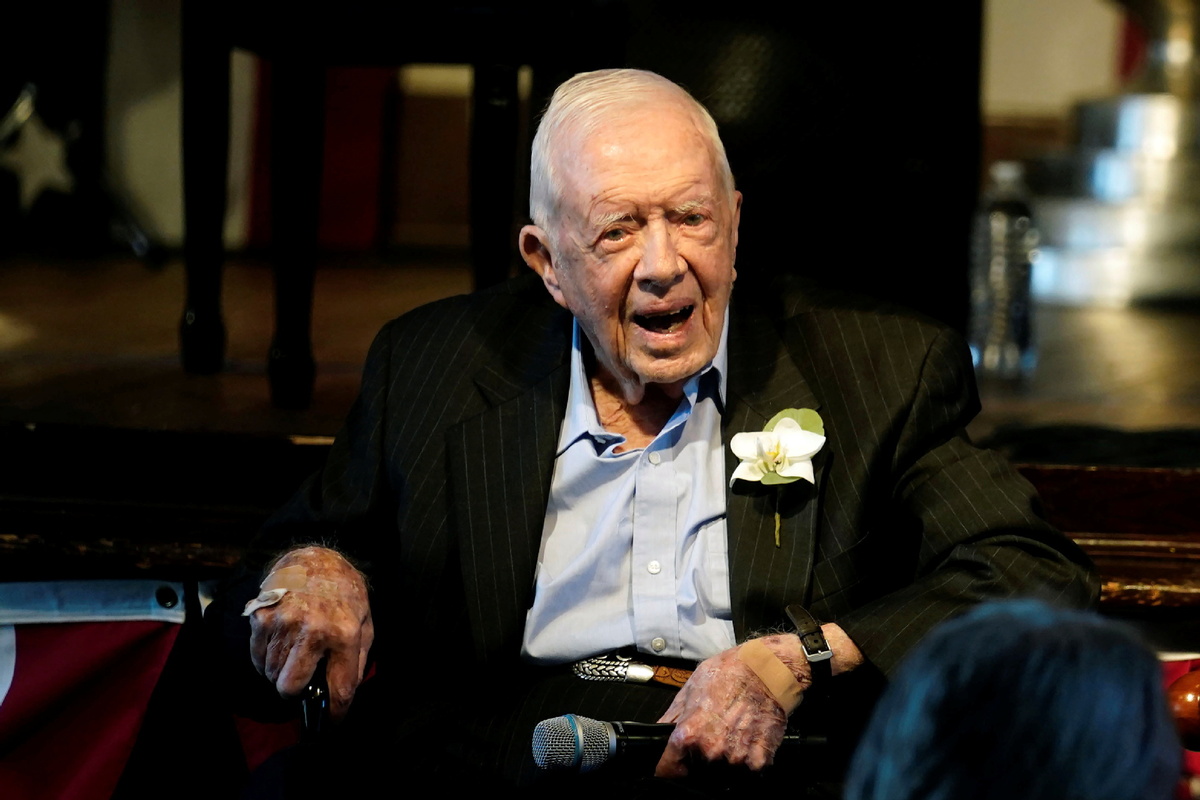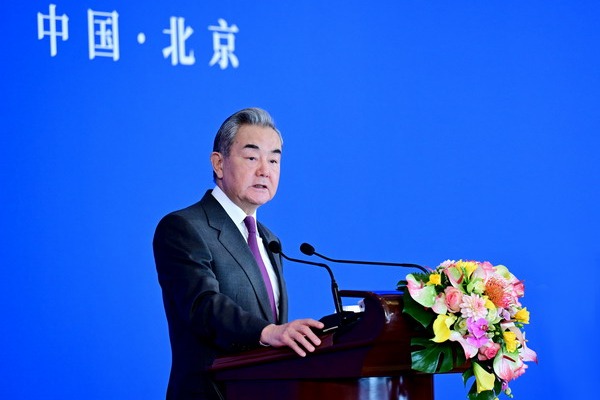Jimmy Carter has hope for US-China ties


Former US president Jimmy Carter believes that "leaders in Washington and Beijing share one common goal: to create peaceful and stable conditions for their people to pursue happiness".
Carter relayed his observations on the bilateral relationship in a recent dialogue with David Firestein, president and CEO of the George H.W. Bush Foundation for US-China Relations (Bush China Foundation).
The discussion was published by the US-China Perception Monitor, an online publication that explores perceptions and misperceptions in US-China relations. The publication is operated by China Focus of the Carter Center, an NGO.
Carter, 96, acknowledged that the current relationship was at its lowest point in years: "In January 2019, The Carter Center held a three-day meeting to commemorate the 40th anniversary of the normalization of US-China relations. Our being the only US-based organization to do this is a stark indication of how the bilateral landscape has changed in recent years."
Carter said that the global trade relationship between the two largest economies is one of the most important in the world despite some fundamental differences.
"Since Deng Xiaoping and I made the joint decision to normalize relations 42 years ago, both countries have reaped countless benefits. Even in a competitive economic environment, there is room for mutual growth and cooperation. Our societies are entwined, and our governments need to protect this important societal and economic connection," Carter said.
The Chinese and US governments should address issues such as intellectual property rights, technology transfer, state subsidies, and non-tariff barriers, but weaponizing trade issues will hurt citizens of both countries, he said.
"I'm a farmer, and I know China imports vast quantities of American agricultural products. The current trade war has prevented American exports from reaching Chinese markets," Carter said.
Carter pointed out that some global challenges require cooperation. "Global warming, nuclear proliferation, international terrorism, and various regional conflicts could best be resolved with leadership and participation from Washington and Beijing," he said. He also said that the two countries should and must design and implement a joint strategy to vaccinate more than 1 billion people in Africa.
Carter said that in the last four decades, the leaders of both countries made peace their priority: "Most important in my opinion has been four decades of peace in East Asia and the Pacific. During the previous four decades, both the US and China suffered during numerous violent conflicts in the region. Since then, our nations and the entire region have benefited from this peace."
In Carter's view, the US has benefitted from the engagement. "Trade and investment with China have advanced our economy," he said. "New jobs were created. Tourism has flourished. Chinese merchandise has made ordinary Americans' lives better. Our universities and colleges welcomed thousands of Chinese students and scholars. Our institutions have gained from the talent of Chinese researchers, and their American experience has influenced modern China."
Carter said that he is hopeful about the vital relationship.
"While the official diplomatic relationship between our countries is just four decades old, we have had positive interactions for centuries," he said. "I am hopeful about the prospects for building our futures together. I am confident that both the American and Chinese people desire peace and prosperity. My 97th birthday falls on China's National Day this year. I hope stability and vitality will be restored to the relationship Deng Xiaoping and I established."
In a message before the dialogue, Neil Bush, founder and chairman of the Bush China Foundation, said that his father's vision for the US-China relationship — informed by his service as America's envoy to China in the mid-1970s — aligned with Carter's vision.
Chip Carter, son of the ex-president, said that he and Neil Bush have had the opportunity to "continue our fathers' shared legacies together".
"In addition to both playing a role in our families' legacies on US-China relations, Neil and I have found that we share common ground on other topics as well," he said. "At a time when our country is divided along party lines, it's refreshing that our families can come together to work on a common goal."

































